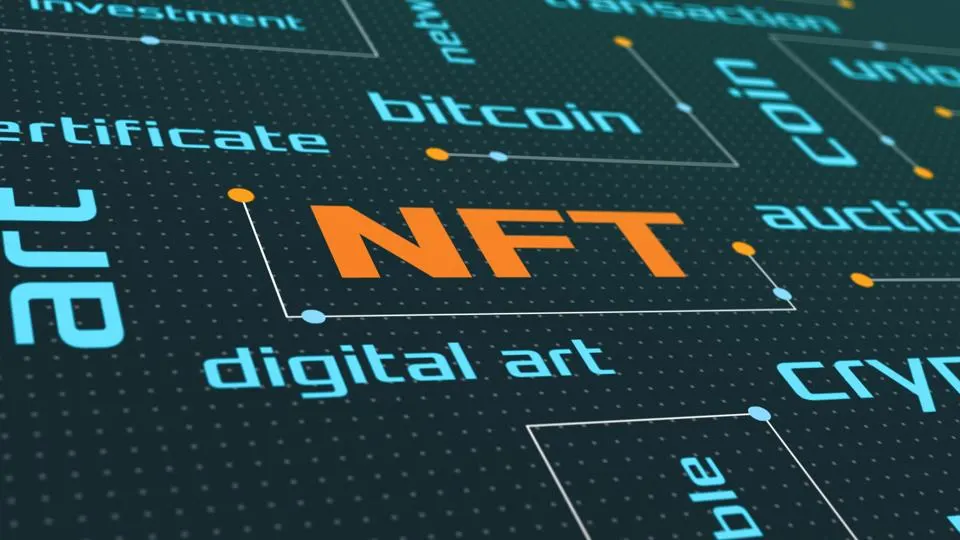Mercedes-Benz, Lufthansa, and Deutsche Post are among the major German firms that have launched innovative NFT projects to interact with customers and foster brand loyalty. These projects showcase the potential of NFTs in various sectors and industries.

NFTs have gained popularity in recent years as a new form of digital collectibles and a way to create value and ownership in the online world.
Several major German firms have recognized the potential of NFTs and have embarked on ventures to leverage this technology for their businesses.
These firms are exploring creative ways to interact with their customer base and foster brand loyalty in the digital era.
Mercedes-Benz: Celebrating automotive history with NFT art
Mercedes-Benz, the iconic German automobile manufacturer renowned for its luxury vehicles, has ventured into the digital realm by releasing a limited edition of NFT art pieces.
These exclusive NFTs feature meticulously designed digital representations of classic Mercedes-Benz cars, celebrating the brand’s rich history and innovation in automotive engineering.
These NFT art pieces serve not only as a unique digital collectible but also as a testament to the brand’s commitment to technological innovation.
Mercedes-Benz enthusiasts and collectors can now own a piece of automotive history in the digital format, fostering a deeper connection between the brand and its dedicated customer base.
Mercedes-Benz has introduced a groundbreaking initiative wherein a select number of NFT owners will have the opportunity to attend an exclusive virtual event hosted by the company.
This event will provide a platform for fans to interact directly with Mercedes-Benz executives, designers, and engineers, gaining insights into the future of automotive technology and design.
The Mercedes-Benz NFT collection is part of the company’s Web3 arm, Mercedes-Benz NXT, which aims to build a presence within the blockchain and crypto community.
The collection is built on Polygon, an Ethereum scaling network that enables faster and cheaper transactions.
Lufthansa: Rewarding passengers with NFT tokens
Lufthansa, one of Europe’s largest and most prestigious airlines, is also making strides in the NFT space.
It has introduced an innovative NFT loyalty program, providing passengers with a novel way to engage with the airline and earn exclusive rewards.
Passengers who enroll in the program will have the opportunity to earn NFT tokens through their frequent travel with Lufthansa.
These tokens can be redeemed for a range of exclusive benefits, including priority boarding, access to airport lounges, and even complimentary flight upgrades.
This loyalty program not only incentivizes customer loyalty but also fosters a sense of community among Lufthansa’s frequent flyers.
Additionally, Lufthansa has collaborated with renowned digital artists to create limited-edition NFTs that showcase the airline’s commitment to innovation and sustainability.
These NFTs serve as a creative representation of Lufthansa’s brand values and are made available for purchase by aviation enthusiasts and collectors worldwide.
Deutsche Post: Combining NFTs with AI-generated imagery
The German postal service, Deutsche Post, has taken a distinctive approach to NFTs by combining them with artificial intelligence (AI).
Deutsche Post is set to release its first limited-edition collectible stamp. This classic self-adhesive stamp will come with a digital image, effectively functioning as an NFT that represents ownership of the physical stamp.
What sets Deutsche Post’s NFT stamp collection apart is the use of AI-generated imagery.
The inaugural stamp in the collection features a pixelated image of the iconic Brandenburg Gate, showcasing the potential of AI in creating unique digital assets.
Future stamps in the collection will continue to feature other iconic German landmarks, creating a digital portfolio of cultural heritage.
Deutsche Post’s NFT stamps are powered by Ocean Protocol, a decentralized data exchange platform that enables secure and transparent access to data assets.
The stamps are also verified by Chainlink, a decentralized oracle network that provides reliable data feeds for smart contracts.
The future of NFTs in Germany
These examples illustrate how some of the leading German firms are using NFTs to enhance customer engagement and loyalty. These firms are tapping into the burgeoning NFT market, which is expected to grow exponentially in the coming years.
According to a recent report by PwC Germany, the global NFT market reached $2.5 billion in sales in the first half of 2021, up from $13.7 million in the same period last year.
The report also predicts that Germany will become one of the key players in the European NFT market thanks to its strong economy, innovation culture, and regulatory framework.
It also identifies some of the challenges and opportunities for the NFT industry in Germany, such as:
- The need for more education and awareness among consumers and businesses about the benefits and risks of NFTs.
- The need for more collaboration and standardization among stakeholders to ensure interoperability and scalability of NFT platforms and protocols.
- The need for more innovation and experimentation to create new use cases and markets for NFTs across various sectors and industries.
The report concludes that NFTs have the potential to transform the digital economy and society, creating new forms of value, ownership, and expression.
It also urges German firms to embrace NFTs as a strategic opportunity to differentiate themselves from their competitors and connect with their customers in the digital era.
